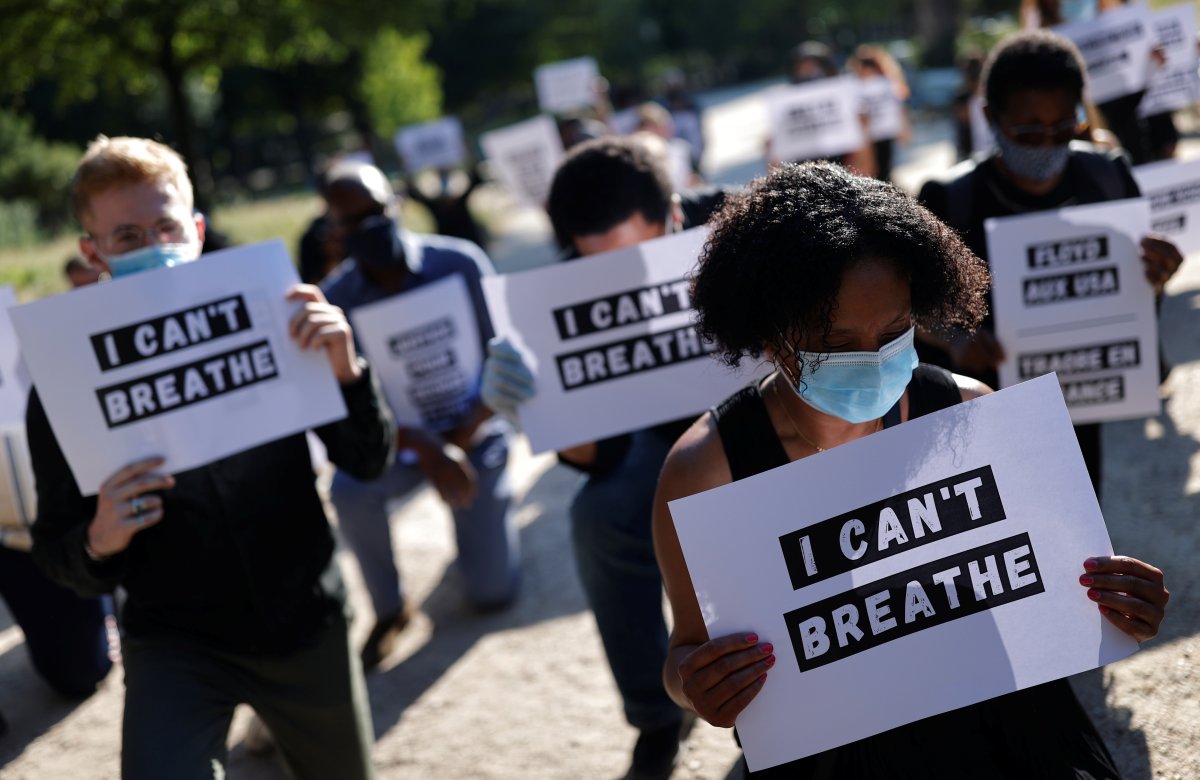Halifax poet and activist El Jones read her new poem, “They say that Blackness is depravity,” in a north-end park on Monday morning.

A passerby walking with a young child and black labrador retriever stopped to listen in.
“They say that Blackness is depravity. They’re a tooth and we’re the cavity,” Jones read from the opening line.
“We orbit in their galaxy
And they claim universality.
From slavery to cavalry
In ghettos or academies
They say we’re inferior naturally
So we’re condemned to live in agony.”
The poem continued, and when Jones finished reading, there was applause.
“That was beautiful, El,” said the passerby. “And what a terrible week we had.”
Jones agreed and thanked the woman.
Jones wrote the poem last week after the death of George Floyd, an unarmed Black man in Minneapolis, who was pinned to the ground by three officers.
Video posted to social media showed the grim scene with Floyd pleading for the officers to give him some air, as one of the policemen drove his knee into his neck and left it there for nearly nine minutes.

Get daily National news
Floyd died and mass protests flared across the United States.
Jones says the demonstrations in the U.S. are all part of a broader issue around police brutality and race-based violence that has a long history in Halifax, as well.
“That’s why you are also seeing people in this city respond,” said Jones.
More than 150 people gathered for a rally on Saturday afternoon to honour Regis Korchinski-Paquet, a 29-year-old Black woman, who died in Toronto after falling from an apartment balcony while police officers were inside investigating reports of a “domestic incident.”

Jones said the protests in the U.S. have people in Halifax enraged and heartbroken because the issue has continued to affect members of the African Nova Scotian community for decades.
“(There’s a) long, long, long history in this province of anti-Black violence, state violence and repression,” said Jones.
Several peaceful protests have escalated into violence and looting in the U.S. and even in Montreal on Sunday night.
Anti-violence activist Quentrel Provo says history keeps repeating itself and that’s what’s creating the reaction we’re seeing now.
“They’ve been peacefully protesting for decades and we’re still getting killed on camera with no kind of consequences,” said Provo.
“People are hurting, families are losing loved ones.”
African Nova Scotian Lynn Jones says she’s never called herself an activist, she’s just trying to survive and fight against racial injustice.
“This is our way of challenging the system and that’s how I view what is happening in the United States,” she said.
“It’s the violence that’s been perpetrated against them and now they are defending themselves. This is a form of self-defence.”
As the demonstrations and protest continue to play out across the U.S. and in Canada, it’s not the fires and looting that should be the focus and getting people upset, says El Jones. Instead, it’s the status quo.
“We really need to stop focusing on saying ‘protestors are violent’ and start talking about police violence and state violence and solve those, then there won’t be any protests,” said Jones.
More than 1,000 people are expected to attend a rally in Halifax Monday night, that’s being organized in solidarity with the Black Lives Matter movement and resistance to police brutality.




_848x480_1397405763961.jpg?h=360&w=540&crop=1&quality=70&strip=all)

Comments